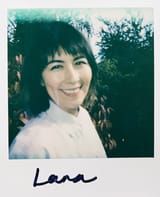medicine is an experiment
track everything

One of the biggest lessons learned from my dad’s cancer journey so far is the importance of documentation. I didn’t fully grasp or appreciate how healthcare is one big, complex, running experiment. Decisions are being made constantly, sometimes on the fly, sometimes off information that doesn’t have a strong basis. This is why documentation matters so much.
When my dad was hospitalized, I was shocked at how hospital staff relied on whatever information he told them verbally from his memory (e.g., what medications he was taking, how long he had experienced a certain symptom); and then doubly shocked how they would use that information to draw conclusions and make decisions for the path forward.
After this experience, I’ve done extensive work to backtrack and create a documentation system to ground my dad’s health in data, including:
- A singular tracker of all medications, over-the-counter (OTC) drugs, and supplements taken by day with dosage. I think this is the most important thing to have, and in hindsight we can trace some mistakes back to the fact that there wasn’t a complete picture of everything my dad was taking at the same time, especially interactions between prescribed and OTC drugs. Because side effects come up and then a slew of new medications get added immediately in response, it is a constant effort to see the bigger picture and make sure everything plays well together. Since my sister and I are very involved, we track this information in Google Sheets.
- Daily vitals. This is another thing I wished we had done in the beginning, but better late than never. At a minimum, tracking weight and blood pressure daily from home is very handy. Being able to quote a specific weight differential over a time period (e.g., they lost 15 pounds in 3 weeks) is an effective way to convey information.
- Food and movement log. Food is medicine, obviously, and in our case, we needed to track specific caloric and protein goals. Myfitnesspal is awesome, imo, because it is free and web-based and pretty intuitive. It can also be used to track water intake, exercise, and more.
A centralized document portal (Google folder). I have read and downloaded every single document from the various hospital/ provider portals and saved a copy in a shared family Google Drive folder. This way, we have a single centralized source of information, which includes documentation from the different providers as well as our own notes and pictures. We use a naming mechanism by date (e.g., 25_0714 Discharge Documentation), so that everything is in chronological order.
Also, having a mirrored Google Drive ensures continuity if something were to happen to the hospital’s portal or if we lose access.
In reviewing the hospitals’ portal, I’ve seen where important information has slipped through the cracks (e.g., dosage info, referrals). I now regularly check the portal to ensure everyone else is updated when new information is added.
- A corresponding master timeline. This is a sheet that summarizes major events by day and the corresponding result/next step. These link back to the summary documents in the centralized Google folder. Capturing the entire journey in one timeline helps us to see insights and connect the dots.
- A journal. Because my parents, sister, and I live in 3 different states, we correspond a lot by email. These emails have functioned almost like a journal about mood, symptoms, and current understanding of hospital orders. I saved pdf copies of the emails in the shared folder and incorporated the high-level info in the timeline.
- AI-based plain language summaries of labs and reports. I copy and paste lab reports--without personal identifiers--into ChatGPT o3 and ask for plain language summaries. I then save that as a Google Doc in our shared folder. This is another thing I wish I was doing from the beginning. Because these lab reports are often uploaded into the portal before the doctor visits, it’s valuable to have a preview of what they say to prepare questions in advance.
Setting up these tools took some time, but we were able to gain valuable insights and hypotheses, and now that we’re a few months in, we’re starting to feel like we have our arms wrapped around this in an empowering way.
